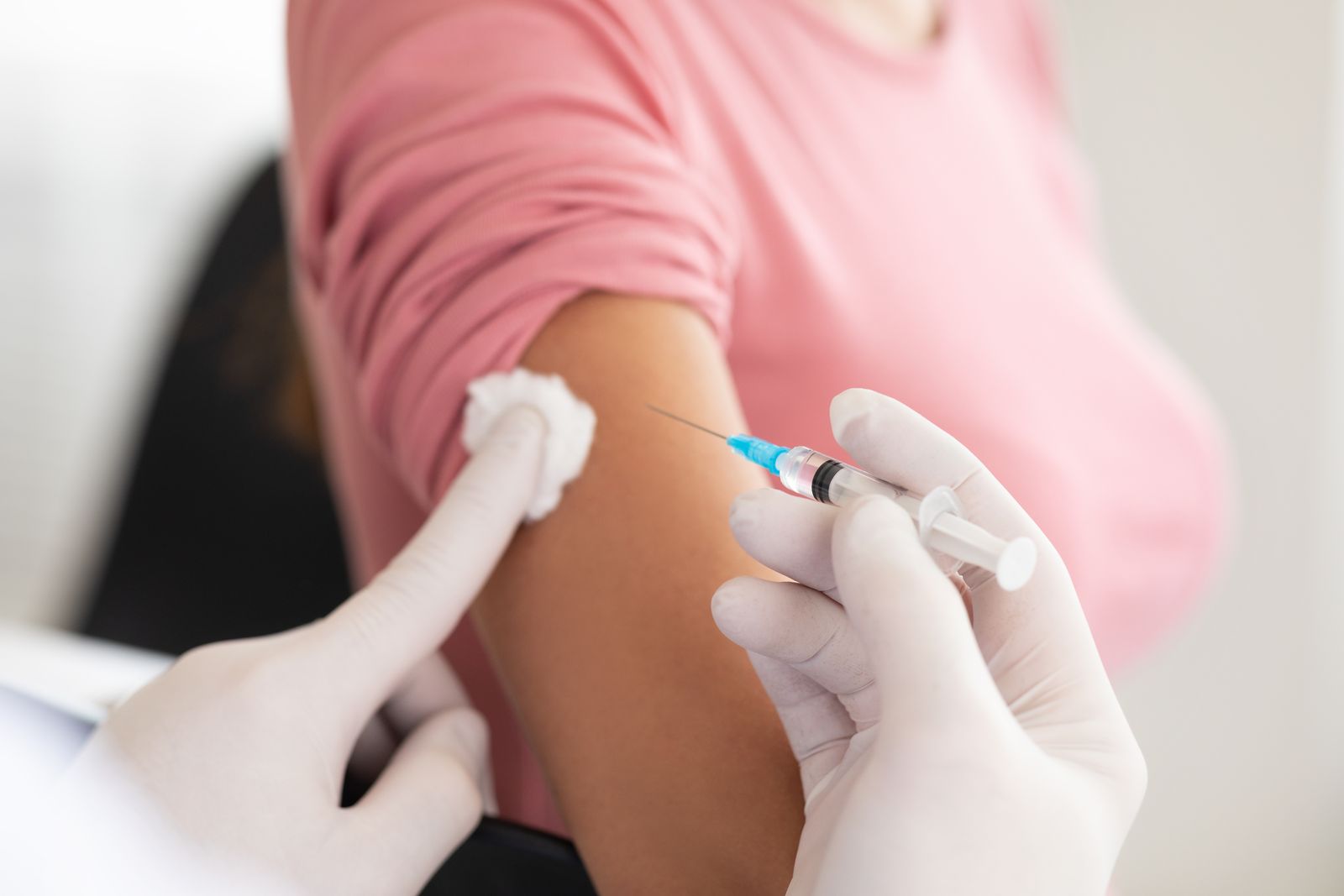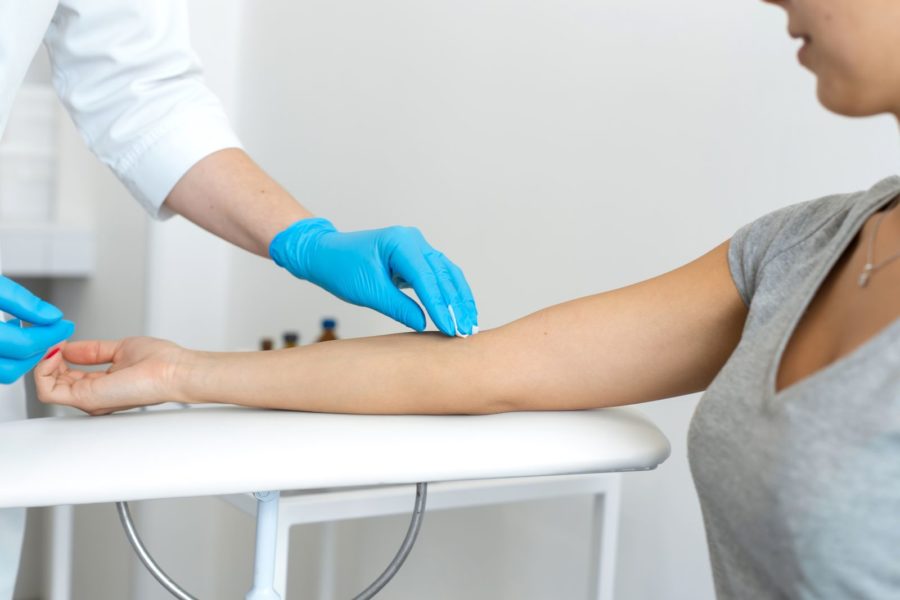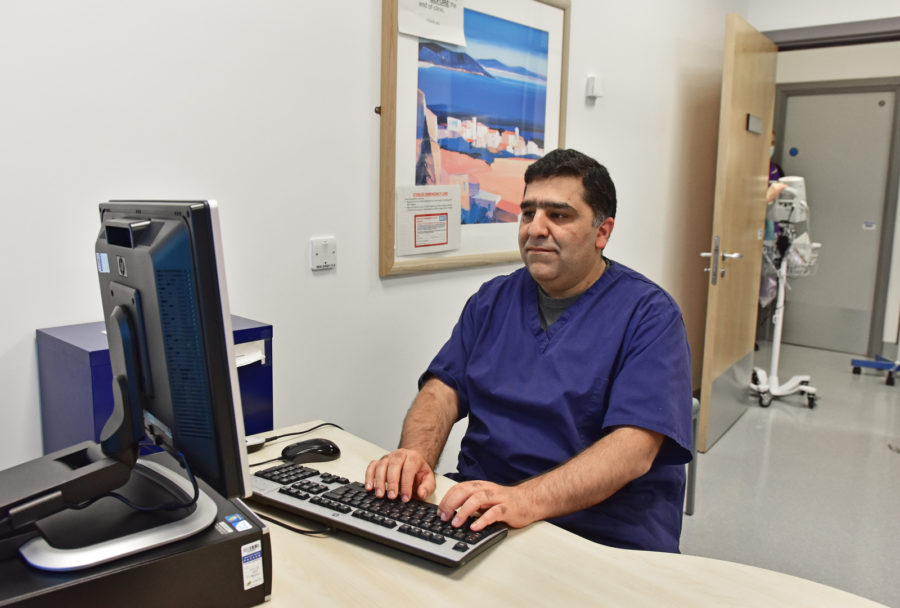
Guidelines for PNH, Aplastic Anaemia and COVID-19
National advice relating to COVID has changed since the pandemic began. We will continue to update the website in response to changes in the national guidance.
Following guidance from the Department of Health, we advise that all patients with PNH should be vaccinated against COVID. This is to ensure that patients with PNH have the highest level of protection against COVID.
If you have any concerns about receiving a vaccine, please contact your PNH specialist centre. If you develop side effects or symptoms from your PNH after receiving a vaccine, please also contact your PNH specialist centre.
Monoclonal antibodies and antiviral treatments which are used to treat people who are at higher risk of becoming unwell with COVID are being used in people over 12 years old. Patients with PNH may be eligible for these therapies, so if you develop COVID symptoms, please contact your PNH centre to discuss this issue.
Updated: 25/11/2024
COVID-19 Guidance
The PNH service continues to follow the Department of Health advice. We have retained the below information for reference currently.
Key Points:
- Make sure you have a thermometer.
- Take your medication as prescribed – please check you have enough supply.
- If you have symptoms of PNH, such as black or red urine, please contact us.
- If you have a temperature of 38 °C or over, contact the PNH National Service.
In addition: if you are on a complement inhibitor (e.g. Eculizumab, Ravulizumab, Pegcetacoplan, Iptacopan, Danicopan or a clinical trial drug) it is important that:
- Your treatment is NOT to be interrupted.
- You will need a full course of ciprofloxacin (10 days of 500 mg bd), not just the two rescue doses that we have prescribed previously. This is to be used after contacting, and being instructed to by the PNH Service. You also need to contact your PNH team if you are unwell.
Please note if you are treated through King’s College Hospital, you will not be issued with additional ciprofloxacin due to proximity to the treatment centre.
We encourage all patients to undergo vaccination for coronavirus when invited to do so
Following the incidence of a small number of patients having episodes of thrombosis following the AstraZeneca vaccination, we advise the following in line with government recommendations:
- If you have received your first vaccination without thrombotic complications, please go ahead and receive your second vaccination.
- If you have not received your first vaccination, and you are under 30 years of age, you should be offered an alternative vaccine, if available. However, if no alternative vaccination is available, consider accepting the AstraZeneca vaccination.
- If you would like to discuss your vaccination further, please contact your PNH team (Leeds, London or Scotland).
COVID-19 vaccine – NHS (www.nhs.uk)
Vaccine Information
COVID + Flu vaccines
COVID and flu vaccines may be given as per national guidelines. Please see below timeline regarding guidance on timing vaccines with your complement inhibitor treatment.
If you have a diagnosis of both PNH and Aplastic Anaemia, please contact the Haematology team primarily responsible for your Aplastic Anaemia care for further for advice before having either of these vaccines.
Meningococcal vaccines
All patients with PNH on complement inhibitor treatment should be vaccinated against meningococcal infection on the day of commencing treatment due to the increased risk. A blood test to check your response to the vaccine will be taken every 12 months by the PNH team. The PNH team will contact you and arrange any additional vaccines you may need, if required.
Haemophilus Influenzae type b (Hib) and Pneumococcal vaccines
In addition to meningococcal vaccines, other PNH treatments such as: pegcetacoplan, iptacopan, Danicopan require vaccination against Haemophilus Influenzae type b (Hib) and Pneumococcal infections. You will be given these on the day you start your complement inhibitor treatment. You will require a Pneumococcal booster vaccination every 5 years. This should be arranged as required.
Shingles
If you are contacted by your GP for a shingles vaccine, you must NOT receive the live vaccination. You should instead have Shingrix, this is a non-live vaccine. If Shingrix is unavailable at your GP, please contact us or ask your GP to liaise with us.
Travel vaccines
If you are travelling abroad and believe you need additional vaccines not stated above, please contact the PNH team for further advice.
RSV
If you are pregnant or aged between 75-79 you may be recommended to have the RSV vaccine. This vaccine helps protect you against Respiratory Syncytial Virus. If you are on a complement inhibitor treatment, please book this vaccine within the timeline outlined below.
Please contact the PNH team if you require any further guidance.
Timeline
We would recommend ALL vaccines to be given following your complement inhibitor treatment within a certain timeframe.
For example:
- Ravulizumab- within the first 4 weeks after your dose
- Eculizumab- within the first week after your dose
- Pegcetacoplan- the day of or day after your infusion
- Iptacopan- no restrictions
For any further information please contact the PNH team.

For patients with Aplastic Anaemia
Where possible, we would advise proceeding with vaccination unless you have a contra-indication. If you are within 6 months of receiving ATG it is possible you may not respond to the vaccine, we would advise discussion with your local haematology team before undergoing vaccination.
If you have low platelets (less than 30×10*9/l) then you should contact your local haematology team before proceeding as the vaccination is currently given into a muscle.
If you have any questions please do not hesitate to contact your PNH team (Leeds, London or Scotland) or your local haematology team.
PLEASE NOTE:
Do not take paracetamol for a high temperature unless instructed to do so by the PNH Service.
If you have respiratory symptoms E.G: sore throat, cough, shortness of breath – seek advice.
Eculizumab and Ravulizumab are licensed only if administered by a health care professional. So unfortunately we are unable to facilitate self-administration.
Patients who are immunocompromised and/or on complement inhibition
Patients who are immunocompromised, for example, patients taking treatment for Aplastic Anaemia (such as Ciclosporin, Eltrombopag, Danazol or Oxymetholone, post-ATG or stem cell transplantation), and patients who are treated with complement inhibitors (such as Eculizumab, Ravulizumab, Iptacopan, Pegcetacoplan, Danicopan or a clinical trial drug) need to protect themselves, to reduce the risk of being infected.
Please do not hesitate to contact the PNH team for further advice if needed, we understand the complexity and how difficult it is for each individual.

Contact Information
- If you are a Leeds patient: Office hours: 0113 2068625, out of hours: 07920535918
- If you are a King’s College Hospital patient: Office hours: 020 3299 3520 / 1039, or if urgent 07623 904 512 and request pager number KH 7684, out of hours: 020 3299 9000 ask for haematologist on-call.
